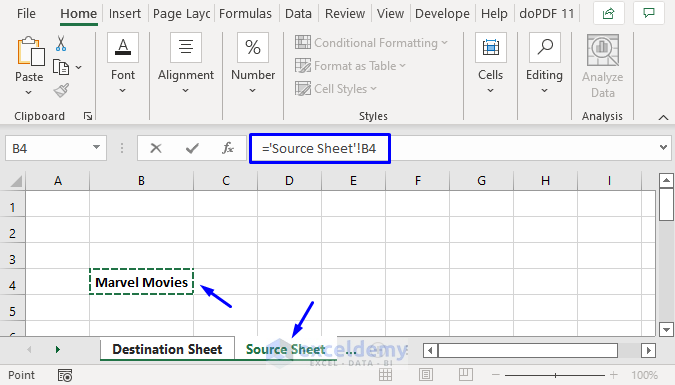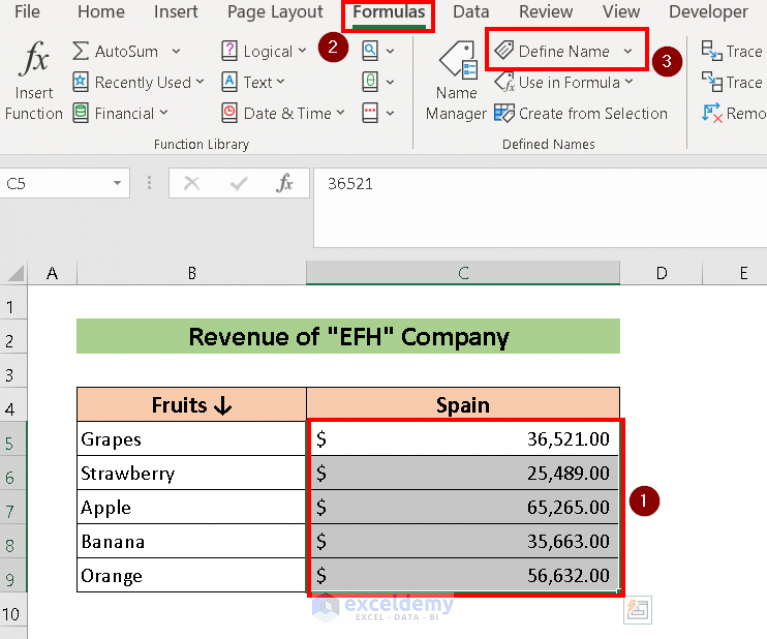3 Ways to Link Sheets in Excel Instantly

How to Link Sheets in Excel Instantly

Linking sheets in Microsoft Excel can be immensely beneficial for data management, analysis, and maintaining consistent updates across multiple worksheets. Here are three effective methods to link sheets in Excel, ensuring your data stays synchronized and your workflow remains efficient.
1. Using Cell References

One of the simplest ways to link data between sheets is by using cell references. Here's how you can do it:
- Open the workbook where you want to link data from one sheet to another.
- In the cell where you want the linked data to appear, type the equal sign (
=) to begin your formula. - Navigate to the source sheet, click on the cell you want to link, and then press Enter. This formula will now look something like
=Sheet2!A1.
Example: If you're in Sheet1 and want to display data from cell A1 of Sheet2, you'll enter:
=Sheet2!A1💡 Note: Remember to check for naming conventions; if your sheet name includes spaces, you need to use single quotes. Example: = 'Data Sheet'!A1.
2. Creating Named Ranges

Named ranges can make linking sheets more intuitive and easier to manage, especially in complex workbooks:
- Select the range of cells you wish to name.
- Go to the
Formulastab, click onName Manager, and thenNew. - Provide a name for this range and define its scope (workbook or specific sheet). Then, click
OK.
Now, when linking:
- Type
=in the destination cell. - Start typing the name of the named range, and Excel will suggest it as you type. Press Enter to complete the formula.
🛈 Note: Named ranges make your formulas more readable and easier to manage over time.
3. Using the INDIRECT Function

The INDIRECT function can dynamically reference different cells or ranges:
- In the destination cell, enter
=INDIRECT("Sheet2!A1"). This formula will return the value from cell A1 on Sheet2. - If you need to reference different sheets or cells dynamically, you can use concatenation or other cell references to build the text string within INDIRECT.
| Reference | Formula |
|---|---|
| Static Reference | =INDIRECT("Sheet2!A1") |
| Dynamic Sheet Name | =INDIRECT(B2&"!A1") |
| Dynamic Cell Address | =INDIRECT("Sheet2!"&A2) |

This wraps up our exploration of three powerful methods to link sheets in Excel. Whether you choose cell references, named ranges, or the INDIRECT function, each approach offers its unique advantages in terms of manageability, readability, and dynamic linking capabilities. By leveraging these techniques, you can enhance your Excel experience, making data management not only more efficient but also more intuitive. Remember to use these methods judiciously based on the complexity of your workbook and your specific needs.
What happens if I delete or rename the source sheet?

+
If you delete the source sheet, Excel will display a #REF! error in the cells with the reference. Renaming the source sheet will also break the link unless you update the reference accordingly.
Can I use these methods to link data between different workbooks?

+
Yes, you can link data between workbooks. Just ensure that both workbooks are open or that the source workbook is accessible when linking. The syntax will include the workbook name, for example, =‘[SourceWorkbook.xlsx]Sheet1’!A1.
How do I prevent links from breaking when moving workbooks?

+
To avoid broken links, always use absolute file paths when linking between workbooks, and try not to move or rename the source workbook. Also, consider using Excel’s Data > Edit Links feature to manage and update link locations if necessary.